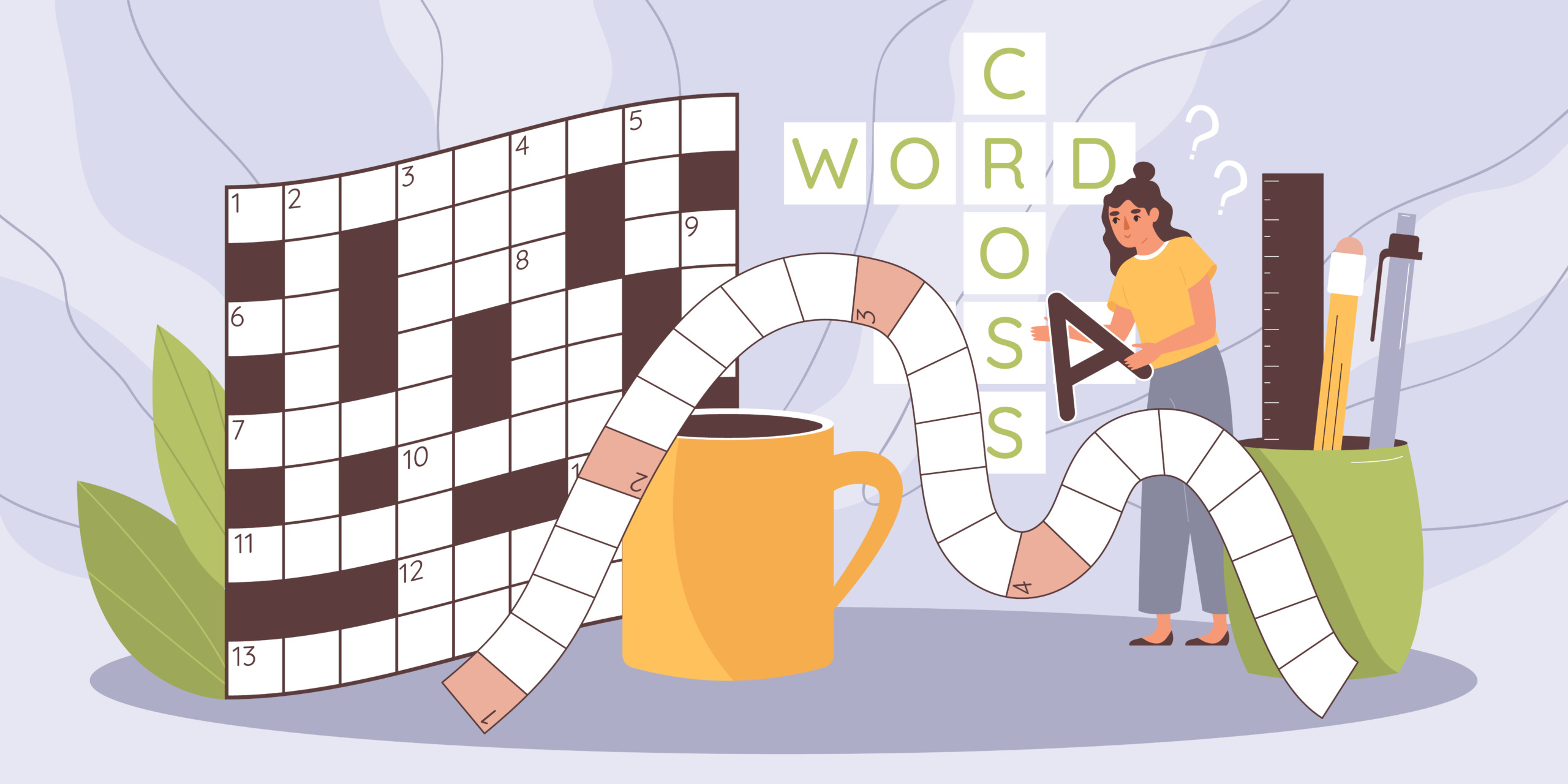Isolation can have a profound impact on an individual’s mental and emotional well-being. One of the most common symptoms of isolation is loneliness, which can manifest in various ways, such as feelings of sadness, emptiness, and a lack of connection with others. This loneliness can lead to depression, anxiety, and even physical health issues if left unaddressed.
Feeling of Isolation Crossword Answer
The feeling of isolation is often described as a sense of disconnection from others, a lack of social support, and a perception of being alone or cut off from the world. This feeling can arise from various circumstances, such as living alone, moving to a new place, or experiencing a significant life change. It can also be exacerbated by factors like social anxiety, shyness, or a lack of opportunities for social interaction.
Isolation Induced Aggression Crossword
Prolonged isolation can sometimes lead to aggressive behavior, particularly in individuals who are already prone to anger or have difficulty regulating their emotions. This phenomenon, known as isolation-induced aggression, can manifest in various forms, such as irritability, outbursts of anger, or even physical violence. It is believed to be a coping mechanism for the stress and frustration that can arise from a lack of social interaction and stimulation.
Also Read: Sara Blake Cheek Age Wiki Biography, Net worth, Zodiac Sign
Symptom of Cabin Fever Crossword
Cabin fever is a term used to describe the restlessness, irritability, and feelings of confinement that can arise from being isolated or confined for an extended period. This condition is often associated with symptoms such as restlessness, difficulty concentrating, mood swings, and a general sense of boredom or frustration. Cabin fever can be particularly challenging during situations like quarantines, long winters, or extended periods of isolation.
Unproductive State of Isolation Crossword
Isolation can have a significant impact on an individual’s productivity and motivation. When deprived of social interaction and external stimuli, some people may experience a decrease in their ability to focus, a lack of motivation, and a general sense of unproductivity. This unproductive state can be exacerbated by factors like depression, lack of routine, or a lack of purpose or goals.
Also Read: Bibian Norai Wiki Biography, Net worth, Zodiac Sign
Place of Isolation Crossword Clue
The term “place of isolation” can refer to various settings where individuals are separated or cut off from others. This could include remote locations like islands, deserts, or wilderness areas, as well as more structured environments like quarantine facilities, prisons, or solitary confinement cells. These places of isolation can have a significant impact on an individual’s mental and emotional well-being, particularly if the isolation is prolonged or involuntary.
Exile Crossword Clue Isolation
Exile is a form of isolation that involves being forced to leave one’s home or country, often for political or religious reasons. This experience can be incredibly traumatic, as individuals are not only separated from their loved ones and familiar surroundings but also face the challenges of adapting to a new culture and way of life. The isolation and displacement associated with exile can have severe psychological consequences, including depression, anxiety, and a sense of loss or identity crisis.
Also Read: Barbara Harris Biography
Sterile Isolation Ward Crossword
A sterile isolation ward is a specialized medical facility designed to prevent the spread of infectious diseases. Patients in these wards are kept in strict isolation, with limited contact with others and stringent protocols for entering and exiting the area. While necessary for medical reasons, this level of isolation can have psychological effects, such as feelings of loneliness, anxiety, and a sense of disconnection from the outside world.
Loneliness Symptom Crossword Puzzle
Loneliness is a common symptom of isolation and can have a significant impact on an individual’s mental and emotional well-being. It is characterized by feelings of sadness, emptiness, and a lack of connection with others. Prolonged loneliness can lead to depression, anxiety, and even physical health issues, such as weakened immune function and an increased risk of cardiovascular disease.
Also Read: Arvid Figgehn, Swedish Minecraft youtuber has passed away from cancer
Psychological Effects of Isolation Crossword
Isolation can have a range of psychological effects, including depression, anxiety, cognitive impairment, and even psychosis in extreme cases. These effects can be exacerbated by factors like pre-existing mental health conditions, lack of social support, and the duration and severity of the isolation. Addressing the psychological effects of isolation is crucial for maintaining overall well-being and preventing long-term consequences.
Isolation Depression Crossword Clue
Depression is a common psychological effect of isolation, particularly if the isolation is prolonged or involuntary. The lack of social interaction, stimulation, and support can contribute to feelings of sadness, hopelessness, and a general lack of motivation or interest in activities. Isolation can also exacerbate existing depressive symptoms or trigger new episodes of depression in individuals who are predisposed to the condition.
Isolation Anxiety Crossword Answer
Anxiety is another common psychological symptom associated with isolation. The lack of social interaction and support can lead to feelings of worry, fear, and heightened stress levels. Individuals in isolation may experience anxiety related to their safety, health, or ability to cope with the situation. Additionally, the uncertainty and lack of control associated with isolation can contribute to anxiety and panic attacks.
Social Isolation Symptom Crossword
Social isolation refers to a lack of social connections, relationships, and interactions with others. This can be a symptom of various underlying conditions, such as depression, anxiety, or physical disabilities that limit mobility and social engagement. Prolonged social isolation can have negative impacts on mental and physical health, including an increased risk of cognitive decline, cardiovascular disease, and premature mortality.
Quarantine Symptom Crossword Puzzle
Quarantine is a form of isolation implemented to prevent the spread of infectious diseases. While necessary for public health, quarantine can have psychological effects, particularly if it is prolonged or accompanied by a lack of information or support. Symptoms of quarantine can include anxiety, depression, irritability, and even post-traumatic stress disorder (PTSD) in some cases.
Solitude Crossword Clue Isolation
Solitude refers to a state of being alone or isolated, often by choice. While some individuals may find solitude refreshing or necessary for personal growth and reflection, prolonged or involuntary solitude can lead to feelings of loneliness, depression, and a lack of social connection. The psychological effects of solitude can vary depending on the individual’s personality, coping mechanisms, and the duration and circumstances of the isolation.
Alienation Crossword Clue Isolation
Alienation is a psychological state characterized by a sense of estrangement, detachment, or separation from others or from one’s environment. It can be a symptom of isolation, as well as other factors like social exclusion, discrimination, or a lack of belonging. Alienation can lead to feelings of loneliness, depression, and a lack of motivation or purpose.
Seclusion Crossword Clue Isolation
Seclusion refers to the act of being secluded or isolated from others, often voluntarily or for a specific purpose, such as meditation, contemplation, or personal growth. While seclusion can be beneficial in moderation, prolonged or involuntary seclusion can lead to psychological effects similar to those associated with isolation, such as loneliness, depression, and anxiety.
Hermit Crossword Clue Isolation
A hermit is an individual who chooses to live in seclusion, often for religious or philosophical reasons. While some hermits may find solace and fulfillment in their isolated lifestyle, others may experience psychological challenges related to prolonged isolation, such as loneliness, depression, and a lack of social connection.
Recluse Crossword Clue Isolation
A recluse is an individual who avoids social interaction and tends to live in isolation or seclusion. This lifestyle can be voluntary or involuntary, and the psychological effects can vary depending on the individual’s circumstances and coping mechanisms. Prolonged isolation as a recluse can lead to mental health issues like depression, anxiety, and social phobia.
Withdrawn Crossword Clue Isolation
Being withdrawn is a symptom of isolation that involves a tendency to avoid social interaction and withdraw from others. This behavior can be a coping mechanism for individuals experiencing depression, anxiety, or other mental health challenges, or it can be a result of prolonged isolation itself. Addressing the underlying causes of withdrawal is important for promoting social engagement and overall well-being.
Frequently Asked Questions
What is the crossword clue Symptom of isolation, perhaps?
The crossword clue Symptom of isolation, perhaps refers to the answer CABIN FEVER, which is a feeling of restlessness or irritability that can develop after being isolated or confined for an extended period.
What does cabin fever mean?
Cabin fever is a slang term that describes the feeling of restlessness, irritability, and boredom that can occur when someone is confined or isolated for an extended period, such as during a long winter or a pandemic lockdown.
How many letters are in the answer to Symptom of isolation, perhaps?
The answer to the crossword clue Symptom of isolation, perhaps is CABIN FEVER, which has 10 letters.
What are some symptoms of cabin fever?
Common symptoms of cabin fever include restlessness, irritability, difficulty concentrating, lethargy, and a strong desire to go outside or be around other people.
How can you prevent cabin fever?
To prevent cabin fever, it’s important to stay active, maintain a routine, pursue hobbies or activities you enjoy, stay connected with others (even virtually), and try to get some fresh air and natural light when possible.
Is cabin fever a real medical condition?
No, cabin fever is not a recognized medical condition, but rather a colloquial term used to describe the psychological and emotional effects of prolonged isolation or confinement.
When was the term “cabin fever” first used?
The term “cabin fever” is believed to have originated in the early 19th century, when it was used to describe the restlessness and irritability experienced by pioneers and settlers during long, isolated winters in remote cabins.
Can cabin fever affect mental health?
Yes, prolonged cabin fever can potentially have negative effects on mental health, such as increased anxiety, depression, and stress levels.
Is cabin fever more common in certain populations?
Cabin fever may be more common in populations that are more likely to experience prolonged isolation or confinement, such as those living in remote areas, people with certain occupations (e.g., astronauts, submariners), or individuals with limited mobility or social interaction.
Can pets help alleviate cabin fever?
Yes, having a pet can help alleviate cabin fever by providing companionship, a sense of purpose, and opportunities for physical activity and playtime.
What are some creative ways to combat cabin fever?
Creative ways to combat cabin fever include trying new indoor hobbies or activities, rearranging or redecorating your living space, practicing mindfulness or meditation, and engaging in virtual social activities or online classes.
Is cabin fever more common in certain seasons?
Cabin fever is often associated with the winter months, when cold weather and shorter daylight hours can make it more challenging to spend time outdoors or engage in outdoor activities.
Can cabin fever affect productivity?
Yes, cabin fever can potentially affect productivity, as feelings of restlessness, irritability, and difficulty concentrating can make it harder to focus on work or complete tasks efficiently.
Is cabin fever more common in urban or rural areas?
Cabin fever is often associated with rural or remote areas, where isolation and confinement may be more common due to limited access to amenities and social opportunities.
Can cabin fever affect relationships?
Prolonged cabin fever can potentially strain relationships, as feelings of irritability and restlessness can lead to increased tension or conflict with others in the same confined space.
What is the origin of the term “cabin fever”?
The term “cabin fever” is believed to have originated from the experiences of pioneers and settlers who spent long, isolated winters confined to their cabins, leading to feelings of restlessness and irritability.
Can cabin fever affect physical health?
While cabin fever is primarily a psychological and emotional experience, prolonged isolation and inactivity can potentially have negative effects on physical health, such as weight gain, muscle loss, or decreased cardiovascular fitness.
Is cabin fever more common in certain age groups?
Cabin fever can affect people of all ages, but it may be more common in certain age groups, such as children or adolescents who have higher energy levels and a greater need for social interaction and stimulation.
Can cabin fever be a symptom of other conditions?
While cabin fever is not a recognized medical condition itself, feelings of restlessness, irritability, and social isolation can be symptoms of certain mental health conditions, such as depression or anxiety disorders.
Can cabin fever affect sleep patterns?
Yes, cabin fever can potentially affect sleep patterns, as feelings of restlessness and irritability can make it harder to fall asleep or stay asleep, leading to disrupted sleep cycles.
What are some tips for coping with cabin fever?
Tips for coping with cabin fever include maintaining a routine, staying physically active, pursuing hobbies or creative outlets, practicing relaxation techniques, and seeking social connections (even virtually).
Can cabin fever affect appetite or eating habits?
Cabin fever can potentially affect appetite or eating habits, as feelings of boredom or restlessness may lead to overeating or unhealthy snacking habits.
Is cabin fever more common in certain professions?
Cabin fever may be more common in professions that involve prolonged isolation or confinement, such as astronauts, submariners, or researchers stationed in remote locations.
Can cabin fever be a symptom of seasonal affective disorder (SAD)?
While cabin fever and seasonal affective disorder (SAD) are distinct experiences, feelings of restlessness and irritability associated with cabin fever can sometimes be exacerbated by the seasonal changes and lack of sunlight that contribute to SAD.
Can cabin fever affect decision-making or judgment?
Prolonged cabin fever can potentially affect decision-making and judgment, as feelings of restlessness, irritability, and difficulty concentrating can impair cognitive function and decision-making abilities.





